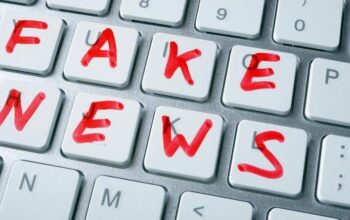In today’s fast-paced digital world, media plays a crucial role in shaping public opinion. However, the question remains: are we being told the whole truth, or is the information we consume carefully manipulated?
The Art of Media Manipulation
Media manipulation refers to deliberately shaping narratives to serve political, economic, or ideological agendas. Governments, corporations, and even media organizations often present information that aligns with their interests, sometimes omitting critical facts or distorting reality.
One standard method is selective reporting, where only certain aspects of a story are covered, while contradictory details are ignored. Another technique is sensationalism, which exaggerates stories to evoke strong emotions, often at the expense of accuracy. Additionally, biased framing can influence public perception by presenting information in a way that supports a particular viewpoint.
Who Controls the Narrative?
A handful of major corporations own a significant portion of global media outlets. This concentration of ownership raises concerns about the diversity of perspectives presented to the public. If a few powerful entities control what is reported, the risk of bias and misinformation increases.
Governments also influence media through censorship, propaganda, and the strategic release of information. For instance, during war or crisis, officials may suppress unfavorable news to maintain public morale. Similarly, corporate sponsors and advertisers can dictate what gets published, as media outlets rely on them for funding.
The Impact on Society
Media manipulation can shape elections, influence policies, and even ignite conflicts. A misleading narrative can create fear, division, and distrust, making it easier for those in power to push their agendas without opposition. Over time, people become desensitized to critical thinking, accepting information at face value rather than questioning its validity.
How to Spot and Combat Manipulation
To protect ourselves from media manipulation, it’s crucial to:
Diversify news sources: Relying on multiple sources, including independent and international outlets, provides a more balanced view.
Question the narrative: Consider who benefits from a particular story and what might be missing.
Verify information: Fact-checking organizations, academic research, and official records can help determine credibility.
Recognize emotional triggers: If a story provokes extreme anger or fear, it may be designed to manipulate rather than inform.
Conclusion
While media is a powerful tool for spreading knowledge, it can also be used to mislead. Awareness of manipulation tactics empowers individuals to think critically and seek the truth. In a world where information is abundant but often distorted, questioning what we are told is not just a right—it’s a necessity.




